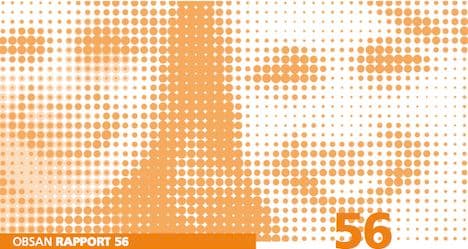Depression exacts heavy cost on Swiss economy

Almost one in six Swiss residents suffers from symptoms of depression, an illness that costs Switzerland’s economy an estimated 11 billion francs a year, a report released on Monday says.
The Swiss Health Observatory said around 16 percent of the population experiences symptoms linked to depression such as lack of energy, sleeping problems, non-specific back problems and loss of appetite.
This translates into economic losses largely due to absences from work and reductions in productivity, in addition to social problems and those at the individual level, the observatory's 140-page report says.
Depression is typically defined as a state of low mood and aversion to activity that can affect a person's thoughts, behaviour and sense of well-being.
In extreme cases, it may lead a person to contemplate suicide, in other cases it may affect eating habits or lead to problems concentrating and remembering details.
Depression begins to affect sufferers on average around the age of 30, well before physical problems, returning in a chronic manner and often associated with other illnesses, the report says.
An inquiry into Swiss health has shown that 5.2 percent of the active population (not including those in health care facilities) suffers from serious depression.
Such cases affect men and women equally, but in milder cases women seem to suffer more than men, particularly in couples with children, a situation that appears to be linked to stress related to raising a family.
While the level of people suffering from depresssion appears to be stable, more people appear to be willing to acknowledge that they may have mild problems with the disease because it is less “taboo” than in the past.
However, because depression remains stigmatized overall, its effects can be debilitating “even when it concerns depression of a mild nature” because only one in two people seek medical treatment to deal with it, the observatory said.
Even then, it is on average only 10 years after the symptoms begin that people seek treatment at a time when the process of “socio-professional disintegration” is already well advanced, the organization said.
“Depression is often not diagnosed by general practitioners and is not always treated appropriately.”
The health observatory said people suffering from depression in Switzerland need more help particularly while working on the job from care givers who can intervene as required.
“Depression goes hand in hand not only with a major loss of social relations, but also with a feeling of loss of support from the circle of acquaintances and a feeling of loneliness and exclusion,” its report said.
It is only “too rarely the case in Switzerland” that people with such afflictions get the attention they need, the report concluded.
Comments
See Also
The Swiss Health Observatory said around 16 percent of the population experiences symptoms linked to depression such as lack of energy, sleeping problems, non-specific back problems and loss of appetite.
This translates into economic losses largely due to absences from work and reductions in productivity, in addition to social problems and those at the individual level, the observatory's 140-page report says.
Depression is typically defined as a state of low mood and aversion to activity that can affect a person's thoughts, behaviour and sense of well-being.
In extreme cases, it may lead a person to contemplate suicide, in other cases it may affect eating habits or lead to problems concentrating and remembering details.
Depression begins to affect sufferers on average around the age of 30, well before physical problems, returning in a chronic manner and often associated with other illnesses, the report says.
An inquiry into Swiss health has shown that 5.2 percent of the active population (not including those in health care facilities) suffers from serious depression.
Such cases affect men and women equally, but in milder cases women seem to suffer more than men, particularly in couples with children, a situation that appears to be linked to stress related to raising a family.
While the level of people suffering from depresssion appears to be stable, more people appear to be willing to acknowledge that they may have mild problems with the disease because it is less “taboo” than in the past.
However, because depression remains stigmatized overall, its effects can be debilitating “even when it concerns depression of a mild nature” because only one in two people seek medical treatment to deal with it, the observatory said.
Even then, it is on average only 10 years after the symptoms begin that people seek treatment at a time when the process of “socio-professional disintegration” is already well advanced, the organization said.
“Depression is often not diagnosed by general practitioners and is not always treated appropriately.”
The health observatory said people suffering from depression in Switzerland need more help particularly while working on the job from care givers who can intervene as required.
“Depression goes hand in hand not only with a major loss of social relations, but also with a feeling of loss of support from the circle of acquaintances and a feeling of loneliness and exclusion,” its report said.
It is only “too rarely the case in Switzerland” that people with such afflictions get the attention they need, the report concluded.
Join the conversation in our comments section below. Share your own views and experience and if you have a question or suggestion for our journalists then email us at [email protected].
Please keep comments civil, constructive and on topic – and make sure to read our terms of use before getting involved.
Please log in here to leave a comment.